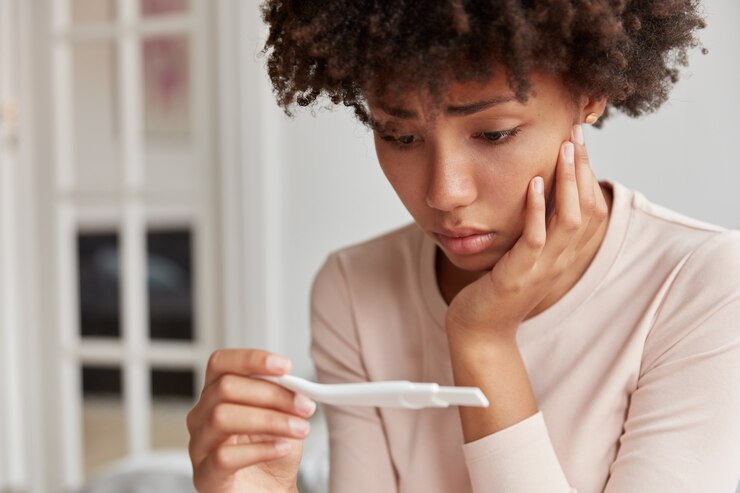In a heated legal battle that has been raging for months, the fight over Wyoming’s controversial abortion ban continues to simmer. The latest development saw a federal judge issue a temporary stay on the law, preventing it from being enforced while court proceedings unfold. This decision has reignited the debate around reproductive rights in America and is sure to have significant implications for women across the country. In this blog post, we’ll explore what led up to this point and why it matters so much to those fighting for their right to choose. So buckle up and get ready as we dive into one of the most contentious issues facing our nation today!
Why a Abortion Ban was Passed in Wyoming
In early November of 2017, the Wyoming legislature passed a bill banning abortion in the state, with no exceptions for rape or incest. The bill, which was signed into law by Governor Matt Mead (R), received heavy criticism from reproductive rights advocates who called it unconstitutional and an attack on women’s health. A group of women filed a lawsuit against the ban shortly after it was enacted, and on November 20th a federal court issued a temporary restraining order halting its enforcement. On December 6th, Judge Laurie Smith Camp issued an order staying the ban until she can hold hearings to determine its constitutionality. The case is currently pending before the Tenth Circuit Court of Appeals.
The Wyoming abortion ban is one of several similar bills that have been introduced in states across the country this year. Advocates say the legislation is designed to target abortion clinics and restrict access to reproductive services for women in Wyoming. They argue that such measures are unconstitutional because they impose an undue burden on a woman’s right to choose an abortion and do not promote public health interests.
The American Civil Liberties Union (ACLU) of Wyoming has said that if the ban is upheld by the courts, it will challenge it in state and federal courts all over Wyoming. In addition to fighting against the abortion ban itself, ACLU attorneys are also working on litigation challenging other parts of the state’s anti-abortion laws, including requirements that doctors performing abortions have admitting privileges at a local hospital and restrictions on where abortion clinics can operate.
The Lawsuit filed by the ACLU
On September 5, 2017, the American Civil Liberties Union (ACLU) filed a lawsuit challenging the constitutionality of a Wyoming law that would ban all abortions after 20 weeks gestation. The law, which was passed in March 2017 and took effect on August 1, 2017, is the most restrictive abortion ban in the United States.
The lawsuit was filed on behalf of two women who believe that they will be unable to access an abortion if the law is upheld. One of the plaintiffs, 18-year-old Savannah Rodrigues, has an anxiety disorder and anticipates feeling immense stress if she is forced to continue her pregnancy against her will. The other plaintiff, 22-year-old Anna Yocum, has polycystic Ovarian Syndrome (PCOS), a condition that can lead to infertility. Yocum fears that she will not be able to have a healthy child if she continues her pregnancy.
On September 6, 2017, U.S. District Court Judge Alan B. Morrison issued a temporary stay preventing Wyoming from enforcing its fetal heartbeat bill pending further proceedings in the lawsuit. The ACLU has argued that the measure is unconstitutional because it imposes an undue burden on women seeking an abortion and does not provide any medical benefit to pregnant women or their unborn children.
The Order from the District Court
On March 23, 2017, District Judge Alan B. Johnson issued a temporary stay on a Wyoming abortion law that would have made the procedure illegal after 15 weeks of pregnancy. The stay was requested by the American Civil Liberties Union (ACLU) and Planned Parenthood Federation of America (PPFA), who argued that the law was unconstitutional because it placed an undue burden on women’s access to abortion.
The ACLU has also filed a lawsuit against the law, which is set to go into effect in July. In his ruling, Judge Johnson wrote that “the statute presents significant constitutional questions and deserves a full airing in court.” The ruling comes after Wyoming politicians passed the bill without reviewing its potential impact or consulting with medical experts.
The legality of this abortion ban is still under review by the courts, but this temporary stay will ensure that women in Wyoming can continue to have access to safe and legal abortions until the matter is resolved.
What happens next
In a surprise move, a Wyoming judge issued a temporary stay on the state’s abortion ban on Friday, just hours before it was set to take effect. The ruling from District Judge Alan Johnson comes after an coalition of healthcare providers challenged the law in court. “We are very pleased with today’s ruling by District Court Judge Alan Johnson in defense of women’s health care,” said Gretchen Borchelt, senior counsel at the National Women’s Law Center (NWLC), one of the groups that filed suit against the law. “This injunction will protect pregnant women in Wyoming from being forced to choose between their health and their liberty.”
The law, passed by Wyoming lawmakers last year, would have made it illegal for doctors to perform abortions past 20 weeks gestation and imposed stringent regulations on abortion clinics. The NWLC and other plaintiffs argued that the law is unconstitutional because it imposes an extreme burden on women seeking an abortion and does not provide a rational purpose for infringing upon a woman’s right to choose.
Judge Johnson acknowledged that there may be some hardship for some patients living in Wyoming who need abortions early in their pregnancies but wrote that he could not find any compelling justification for overriding a woman’s constitutional right to choose. “While I understand that many people disagree with terminating pregnancies before 20 weeks gestation, this measure does not have any proven benefits,” Johnson wrote. “Rather than passing laws that put unnecessary obstacles in front of pregnant women seeking care, Wyoming should focus its efforts on improving access to prenatal
Conclusion
A legal battle over Wyoming’s abortion ban has continued as a judge issues a temporary stay on the law. In October, Governor Matt Mead signed legislation into law banning all abortions after 20 weeks gestation, with no exceptions for rape or incest. The American Civil Liberties Union filed a lawsuit against the measure, arguing that it is unconstitutional and will result in women being forced to seek out illegal abortions. On Monday, District Judge Alan Masters issued a temporary restraining order preventing the law from taking effect while the lawsuit is ongoing.










